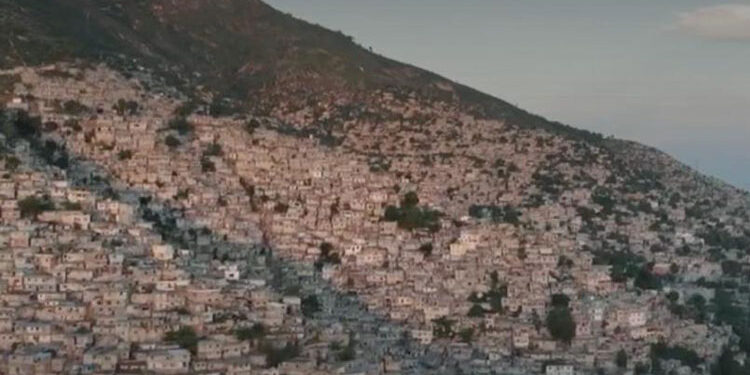Casa de América, in collaboration with the Spanish Embassy in Haiti, presents tomorrow Tuesday at 7 pm the documentary Haiti, the rescue of freedom (Haïti, the rançon de la liberté), directed by journalist and filmmaker Gilles Gasser.
After the screening, a dialogue will take place with the participation of the director, Marco Peñín Toledano and Gahston Saint-Fleur.
Gilles Gasser has directed and written reports for France Télévision (Thalassa), Arte (Art Reportage) and TF1 (5 to 7), especially in Colombia, Nicaragua, the Democratic Republic of the Congo, Bosnia-Herzegovina, Haiti, Mali, Senegal, Albania, the South Pacific and Northern Ireland. Has participated in several documentary projects as a writer and researcher (Children of the Clouds, Hitler’s Tribunals, The Cup, etc.). Since the 1990s and during the Yugoslav war, he has worked regularly with humanitarian agencies as a communication expert, journalist trainer and evaluator.
The documentary features the testimonies of Lyonel Trouillot (writer), Esther Montpoint (artist), André Paultre (journalist), Soeur Paesie (religious), Fritz Alphonse Jean (economist), Pierre Buteau (historian), Rolland Jean (farmer), Jean Philippe Lebourg (doctor), Frantz Duval (journalist), Pharell Kesner (economist), Herode Charnel (lawyer).
To understand the dramas that are tearing Haiti apart today, it is essential to take a look at its history. The «Pearl of the Antilles» was the first country to free itself from slavery after a bloody war of independence against the Napoleonic troops. But in the 19th century, France imposed on its former colony a colossal debt of 150 million gold francs. This payment condemned the young nation to poverty and chronic underdevelopment that caused political instability, food crises and violence against a backdrop of natural disasters. Today, the priority of Haitians is survival, but they have not forgotten this painful past and this profound injustice. The documentary offers a retrospective look at the unique and tragic fate of the poorest country in Latin America and the Caribbean.
Free admission until the capacity of 70 seats is reached. Tickets will be distributed one hour before the start of the screening.







